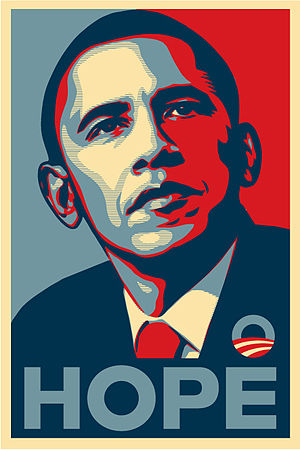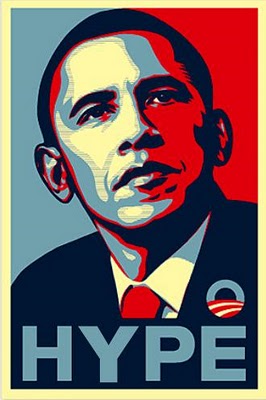How We Got Here
Published at 11:07 on 14 December 2016
The Story Goes Way Back
Because the story goes way back, the account given here will of necessity be incomplete. The racial prejudice that facilitated the alt-right is very old, going back to the days of Negro slavery and Indian removal and indeed before. A full exposition would include most of world history and human psychology, and thus be vastly longer than any single blog post could accommodate.
The Events of 1993
In 1993, the Soviet Union had already collapsed. The collapse happened far more suddenly and with far less advance warning than most observers thought possible. Just a decade earlier, the USSR was a world superpower, still locked in its decades-long stare-off with the USA. Now, it had collapsed, leaving no small degree of chaos in its wake.
The living standards of the Russian people were in a free-fall, and many Russians were blaming the headlong rush into capitalism being advocated by then president Boris Yeltsin for the collapse. Socialists still controlled the parliament, and were using their control to oppose Yeltsin’s pro-capitalist desires.
Yeltsin’s response was to stage what can only be described as a coup d’etat. It wasn’t described as such by the vast majority of Western media, of course, but that’s basically what it was: Yeltsin ordered the army to shell the parliament building and then proceeded to forcibly dissolve parliament.
In the wake of that show of force, he managed to get a new constitution written and approved by popular referendum which created the same imperial presidency that Vladimir Putin uses to rule today. In this, he had the solid support of the capitalist West, who once again opted to choose capitalism over democracy when it comes to a nation outside of the First World. The regret only came later, when Putin started using that power in ways contrary to the West’s desires.
Therefore, the West created Putin. Please keep that in mind for the rest of this article, lest you be tempted to dismiss it as nothing more than vulgar Russophobia and a lust for a new Cold War.
Enter George W. Bush
Running an empire requires a powerful and secretive executive branch, particularly so in a nation that got its start by revolting against the premier imperialist empire of its day. A web of executive power, secrecy, and mass-media propaganda in favor of empire must be used to manage and control a public opinion whose natural trend will be in inconvenient directions. Therefore, an imperial presidency has evolved since the end of the Second World War.
This presidency was always a potential threat to our domestic freedom; as Lord Acton once observed, power corrupts. It turns out that imperialism is not only a threat to freedom abroad, in the nations on the receiving end of it. Under the administration of George W. Bush, the corrupting tendency of such power bore fruit in the form of a regime that lied its way into an avoidable war that destabilized the Middle East and paved the way for the rise of the Islamic State.
Enter Barack Obama
First, two illustrations:


Obama’s biggest failings both relate to the imperial presidency that facilitated Bush’s abuses of power. First, he did little or nothing to scale back and repudiate the abuses of power that Bush began. He kept the powers of extraordinary redition. He kept the ability of the president to order extrajudicial executions, even extrajudicial executions of US citizens. He did virtually nothing to prosecute unlawful abuses of power under the Bush Regime, thus setting an almost unspeakably dangerous historical precedent that such abuses should go unpunished.
Worse, he expanded the power of the imperial presidency. Frustrated by an uncooperative Congress, he opted to implement policy by executive fiat. He vigorously oppressed domestic dissidents such as Chelsea Manning and Edward Snowden who tried to expose government abuses. How bad was Obama? Just consider this: According to the ACLU, Obama collectively sentenced whistleblowers to twenty one times more prison time than all other prior presidents combined.
Enter the Alt-Right
The alt-right is a relatively new movement, but as mentioned in the introduction its roots are very old. One characteristic of the alt-right is its illiberal desire for a charismatic, authoritarian leader. It pretty much must advocate such a thing, as demographics in the USA will make it increasingly difficult for white supremacy to get a popular mandate.
Although the alt-right arose due to internal political forces, its admiration for the strongman style of leadership caused it to naturally see Putin’s Russia as something of a model. Putin, using an authoritarian presidency originally created with the approval and encouragement of the West, naturally in turn saw the alt-right as a valuable ally in destabilizing and influencing US politics.
It must be underscored that despite its current level of dangerous influence over the new administration, the alt-right is a relatively small movement. It also must be underscored that the alt-right is nothing less than a neofascist movement which advocates white supremacy and an authoritarian government.
Enter the Manchurian Siberian Candidate
As Michael Moore has observed multiple times, Donald Trump’s ideology is primarily Donald Trump himself, full stop. He will advocate whatever policies and movements he believes at the moment will best maximize his personal power. Donald Trump saw — correctly — that the alt-right would be a useful group to pander to.
Most conservatives would have enough conscience to find such pandering distasteful and would eschew it. For openers, the alt-right is a profoundly unconservative movement; it has little or no regard for traditional American ideals which conservatives value, and welcomes the idea of extreme, sudden change (so long as that change is the sort the alt-right desires, of course). But Donald Trump is a sociopath and not a conservative, so he eagerly made that alliance.
In doing so, he fell under its influence by appointing some of its members as advisers. In doing that, he fell under the influence of a hostile foreign power. Worst of all, thanks to his predecessors and his own sociopathy, he will have at his disposal the most power vested in a single man this nation has ever seen.
Enter the “New Democrat” Hillary Clinton
Against a traditional liberal Democrat, Donald Trump would have had no chance. His faux populism would have fared very poorly against a more genuine concern for the poor and working class. But traditional liberal Democrats are an endangered species these days when it comes to candidates that survive the primary process, thanks in no small part to the “New Democrat” faction started by the Clintons themselves.
It wasn’t just the thumb on the scale by the Democratic National Committee, it was a widespread attitude of defeatism amongst rank-and-file Democrats that a more class-based politics was a relic of the past to be consigned to history’s dustbin which prompted many otherwise liberals to vote for Hillary because she was the more “responsible” and “electable” candidate.
In reality, of course, Bernie Sanders did surprisingly well in the primary, particularly among many of those same Rust Belt voters that later either stayed home, left the president box of their ballots unmarked, or held their nose and voted for Trump. Had it instead been the New Democrats having to hold their noses and vote for Sanders, we would be talking about a vastly different (and vastly more hopeful) situation.
Where From Here (Medium Term)?
In short, the imperative is to confront Russia. It will probably be necessary to “burn” valuable intelligence sources by declassifying evidence in order to build a strong case for doing so. So be it; preserving our national security requires doing so, and intelligence sources exist not for their own sake but in service of this larger goal.
As someone who loathes the idea of a new Cold War with Russia, it pains me to type these words. I have for over twenty-five years disagreed with the immoral and short-sited policies, rooted in bias against Slavic peoples and the non-rich, which devalued the Russian people and paved the way to Putin becoming the threat that he now is. But the fruit of such foolishness having been borne, there I really see no alternative.
Note that by “confront” I do not mean “initiate a shooting war.” We are thankfully not yet at a stage where a shooting war is inevitable. A return to a protracted stare-off, as unpleasant and risky as it may be, is not a shooting war, and is vastly preferable to one.
We will, however, probably arrive at such a stage where a shooting war (between nuclear-armed nations, which should truly horrify all reading this) becomes inevitable if we shrink from confrontation at this time. We are at a cusp of history, much like the world was when it had to choose whether to confront or appease Hitler of his territorial ambitions.
Where From Here (Short Term)?
Unfortunately, in the short term we are headed to a president taking office who can best be described as a mixture of Neville Chamberlain and Vidkun Quisling. It is going to be necessary — again, probably by “burning” intelligence sources — to expose the hostile foreign influence this president is acting at the behest of and remove him from power via the impeachment process, the sooner the better.
In this, the Emoluments Clause of the US Constitution, together with Trump’s numerous foreign business entanglements, plus his selfish refusal to disinvest from his business, can reasonably be expected to be a great help.
Doing so will, of course, require significant Republican cooperation. And this is the watershed moment that Republicans have in front of them: to make a choice between Chamberlain conservatism and Churchill conservatism.
In this section I have dropped Neville Chamberlain’s name twice up to this point. Just in case some are unaware of it, I will point out that Chamberlain was indeed a conservative and not a liberal or a socialist, as many Americans tend to believe. He chose to appease fascism because at least fascism was not communism and thus would help, in his mind, make Europe safer for capitalism. He was one of many conservatives who served as a handmaiden for fascism. Churchill made a rather different, wiser (and initially more unpopular) choice.
One man stands today in judgement as one of history’s biggest fools, the other as one of history’s greatest heroes. It is up now to American conservatives to choose whose example they wish to repeat.
